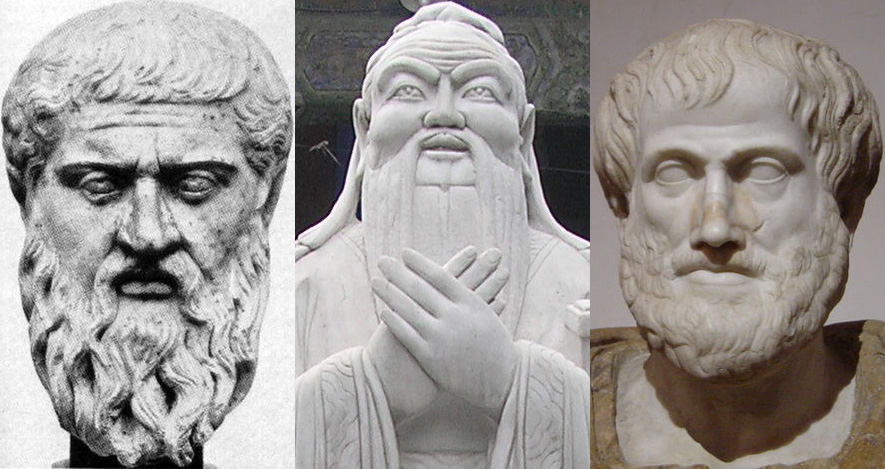Women have always led Booker into wisdom.
Question: What did you learn from leading a Jewish organization at Oxford?
Cory Booker: I guess women in my life always lead me into wisdom. And, ah, so, this was actually a, a, ostensibly I was supposed to meet a woman at this place and I did not know what it was, I could not even pronounce the word OHIM and you can make this up, I walk into this place and to me I automatically stop as I open the door and it looks to me like a scene from Yentl, you know, this black hats and long black coats and [Inaudible] that hanging out, I did even know what [Inaudible] were, strings to me. I wondered if I pulled then what would unravel you know? So, it sort of, it was one of those old scenes from a commercial that people of my age will remember call the EF Hutton commercial where until you walk in it everything stops and people are looking at me and I am looking at them. And my mind is going “okay, these people are probably wondering what this large black man is doing here” and then I thought to myself as I said “yeah and I am wondering what this large black man is doing here” and so I just looked around and then this women comes over me, this very orthodox looking woman and says to me, “you are supposed to be here to me so-and-so? Well, she couldn't make it.” I am like Oxford is England just like America, whne it comes to my personal life and I turn around to leave and she says to me “Wait a minute, stop, would you like to join us?” and it really was the question that changed my life. I would like to say that I am so popular, but I double-booked my dates on weekends, but I really had nothing else to do and no excuse to give that I was genuine, like I am sorry, no, I have another persons supposed to meet. So, she sat me down with the only seat open, which was her seat that she got of--it was this crowded banquet it was holiday, I never heard of, call Simchat Torah--and I was sitting there right next to this rabbi, who in every visible way was different than me. I am six foot three he is five, four or five six or whatever. I'm black, he is white. He had a lot of hair on his face, I did not, but immediately somehow across the gulf, and this was 1992 when the Crown Heights riots were going on, he had actually studyied in Crown Heights, but somehow right immediately something connected to he and I in a way of real substantive friendship and as we began to talk about what our passions were and at that point I was just so enabled with writing, I just left Stanford when I was writing a column for a local newspaper or for a student newspaper and was just infatuated, and excited, and inspired by authors like, you know, Richard Wright and James Baldwin. So, I talked to him about what I wanted to do and he talked to me that “oh, I write columns all the time” and we had both written this column about the concept of tolerance and he wrote it in England and I was in United States of America, about this idea of tolerance that was sort of saying the same thing that to tolerate another who is different than you. As we always say “we should tolerate each other” but it sort of cynical state of mind that says “I am just tolerating you, but if you disappear of the face of the earth, I am no better off or worse off” as supposed to recognizing every single soul you meet is a gift from God, that we all - you all have divinity in our essence and if that's the truth, then and we need each other, that we should understand each other, we should worked to get beyond tolerance and embrace each other for who we are. Both of us having written the same thing, immediately we started having this powerful conversation. You know by the end of the night he's teaching me my first Hebrew words, because I don’t drink alcohol, and he offered me a drink and he said “according to Judaism you don’t judge a person until I think one of the words was Casocaso” until you are how are you see them with their purse, how they all in their, angry, one of them is anger and how they are when they are drunk, one them was "cop" and he said, “I can never truly know your soul.” I didn't drink, by the end of the night I have a yamaca on and I am dancing around with the Torah and having a blast and I ended up coming back and I think when we ended up doing was showing true love and love is a willingness to in someway sacrifice self and embrace other as self, but in order to do that this got to be real understanding. So we started doing book exchanges. Let me give you a book written by James Baldwin, you give me a book written by Eli Weizel. Let me give you a book by Belkom Madavi [phonetic], let me give you a book written by DuBois and we both found each other's literatures so exciting. I remember I gave him Malcolm X's biography, he tore through it, and at that point was wearing a X hat, so this all goes to that keep underneath.” So, it was just a exciting journey, but we kept coming back on Friday nights, just for fellowships, spiritual fellowship. We found we both vary rooted in the spiritual and the idea that we are children of God. I sort of bringing friends of mine, Christian friends of mine, Muslim friends of mine, so and so forth, and before you knew it, it became the hip place to hang on in Friday nights. There were people of all different faiths, all coming together around this sort of seminal religion, and many ways as Himadides vision was, that Judaism would be a light unto nations, it would teach the role about monotheism, things like that and these powerful conversations, we invite speakers and by the end of the year he said to me, “ you know, Judaism is not about a proselytizing and converting, it is really about teaching goodliness, teaching godliness.” There are principles like seven OHIM laws and things like that. You embody lot of these values and lot of the ideals of universal kindness and goodness. I'd like for you to lead this group, this student group. At first I said “No, I knew you were crazy all the time, now I see you are [Inaudible] as well. He said, uh--we wrestled and argued and I finally said I'll take this risk” and in a way it wasn’t a risk at all, it was just joining together with another brother of mine who in many ways is so different, but with the common vision of the world and what needs to happen, I think for ultimately the bring about let’s see what say messianic era, for, as I would say, to bring about the kind of universal love that this world really needs.
Recorded: 3/11/08





